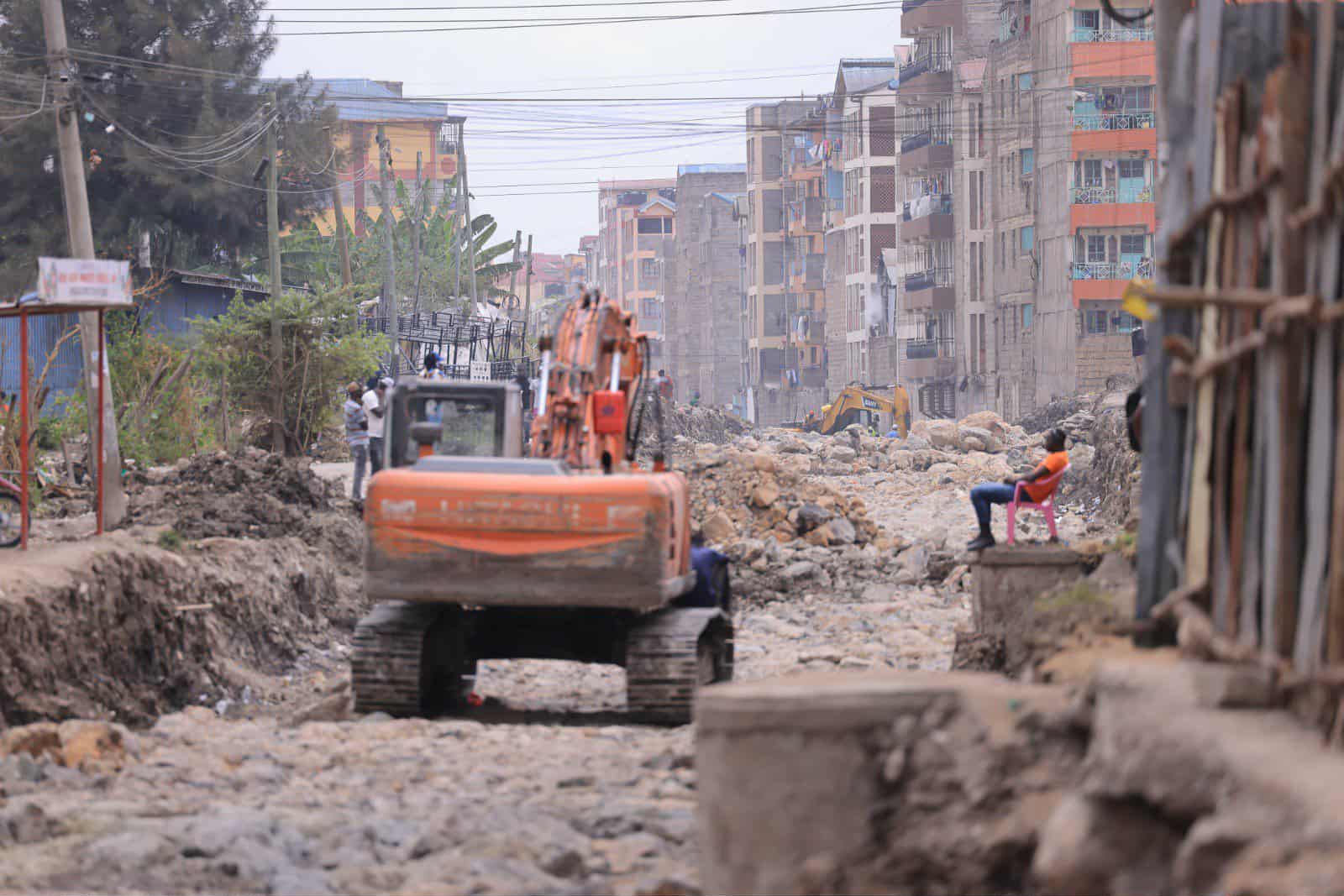
Embakasi East and Embakasi West subcounties are the biggest beneficiaries of Nairobi’s ongoing Sh2.1 billion roads upgrade programme jointly funded by the national and Nairobi government.
The two constituencies have received Sh867 million, nearly half of the total allocation in what officials describe as the city’s largest coordinated infrastructure upgrade in recent years.
The money is being used to build and rehabilitate 10 key roads, including Umoja One SDA road, Kwa Maji road, Umoja Rockfield road, Tena police post access road, the Bypass–Mihango Link road, Aviation School–Fedha–Tassia–Nyayo Embakasi road, Embakasi road to Embakasi Village, Mohango Kajuju road, Kibiku Muhuyu road and Komarock Estate access road.
Governor Johnson Sakaja said the roads are part of a broader push to improve urban mobility and strengthen service delivery across the city.
“These are not plans on paper; they are projects residents can see taking shape. In total, Embakasi East and West have received Sh867 million out of the Sh2.1 billion set aside for city roads and most of these projects will be completed soon,” he said.
Sakaja spoke during the United Winner DT Sacco’s 25th Anniversary celebrations in Umoja,
He said the investments will help decongest Nairobi’s most populated neighbourhoods, enhance movement of goods and services and create jobs for the youth.
“We are connecting estates, schools, markets and health facilities through better roads. This is how we bring services closer to our people,” Sakaja said.
The county has identified road infrastructure as a key driver of economic growth, linking new roads to improved access to schools, hospitals and markets.
The roads upgrade programme also supports the Ward Development Programme, which continues to post record investments in neighbourhood-level infrastructure.
“In 2017, only Sh200 million was spent on ward projects. When I got into office, that rose to Sh950 million in 2022–23, Sh753 million in 2023–24 and Sh680 million this year,” Sakaja said.
He credited Nairobi’s record own-source revenue of Sh13.8 billion, up from Sh10.8 billion in 2022, for enabling the expansion of development projects across the city.
“It’s not about money; it’s our responsibility to ensure development is done with order, safety and integrity. This is your tax money at work,” Sakaja said.
Alongside the road investments, the county is also moving to restore order in the city’s construction sector through the Regularisation of Unauthorised Development Act, 2025, which seeks to bring illegal or unapproved buildings into compliance with planning and safety laws.
The governor said a limited window was opened for property owners to regularise their developments before enforcement begins.
“If you know you have an illegal building, you have a window to regularise. Please come and regularise. When that window closes, that’s it, the law will take its course,” he warned.
The department of built environment and Urban Planning has invited developers and land-buying companies to apply for regularisation through registered professionals, including architects, physical planners, structural engineers and environmental experts.This is done via the Nairobi Planning and Development Management System.
Sakaja said the initiative is not a revenue drive but a public safety measure.
“It’s our duty to ensure development is done in an orderly manner with proper public utilities, access for emergencies and structural integrity,” he said.
Chief officer for urban development and planning Patrick Analo said the process is designed to be fair, transparent and lawful.
“Some of these matters went to court and rulings were made. We are now giving property owners a chance to regularise before enforcement begins,” he said.
Areas most affected by unapproved developments include Ruai, Kasarani, Mwiki, Roysambu and sections of Embakasi, where unplanned construction has led to congestion and poor infrastructure access.
Officials say the combination of infrastructure expansion and strict planning enforcement will ensure Nairobi grows in a structured, safe and sustainable manner.
“We are not just building roads,” Sakaja said. “We are building a city that works — one that grows with order, discipline and integrity.”


















